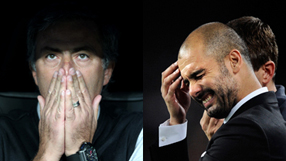Spanish politicos seek La Liga TV cash-sharing
Spain's centre-right People's Party (PP) plans to push Real Madrid and Barcelona to find consensus with their La Liga rivals on a more equitable distribution of income from television rights, according to PP policymaker Miriam Blasco.

Polls suggest the PP is heading for an election victory over the ruling Socialists on Sunday and Blasco, an Olympic gold medallist in judo and PP sports policy spokesperson in the Senate since 2000, said it was vital the less wealthy clubs had a fair slice of the TV pie.
"You have to support the small teams as well, because it's true that the Spanish league would not exist if it was not working for all the clubs," Blasco, a candidate to become Spain's top sports official after the election, said in an interview.
"It's also true that Real Madrid and Barcelona sell much more than any other club so I agree that they should get the biggest share," added the 47-year-old, who is standing for the lower house in the city of Alicante.
"But I believe that the other clubs should get what they deserve because their current revenues are much smaller."
Under the current system, Real and Barca, the world's richest clubs by revenue, negotiate their own deals with media firms and between them take half the annual pot of around 600 million euros.
Barca earned almost 180 million euros from TV contracts in the 2009/10 season, including non-Spanish deals, with Real reaping just under 160 million, according to the latest Deloitte Football Money League published in February.
A study last year by Sport+Markt, a consulting firm, showed the pair earned almost 19 times more from TV than the smallest clubs in Spain's top division, by far the biggest gap in the major European leagues.
The best features, fun and footballing quizzes, straight to your inbox every week.
The richest clubs in the English Premier League, which has a system of collective bargaining and income sharing, earned about 1.7 times more than their smaller rivals.
CONSENSUS SEEKERS
Sevilla have fronted a recent bid to persuade Real and Barca to reintroduce collective bargaining and share the cash more equitably, accusing them of "stealing" from their domestic rivals and creating a situation in which only they are capable of winning the league.
The problem has been exacerbated by the financial crisis, which has dented income from advertising and sponsorship and helped tip many clubs into administration.
"Football is living beyond its means and only two clubs are viable as things stand," Blasco said.
"There are more and more clubs in administration and if it collapses then Real Madrid and Barcelona will lose too.
"What we have to do is find a consensus and what we are aiming to do is start a dialogue with everyone and act as intermediaries in the talks."
Blasco, who became the first Spanish woman to win an Olympic gold at the Games in Barcelona in 1992, stressed that the PP was not planning to legislate to force change on Real and Barca.
The professional football league (LFP), which used to negotiate TV contracts on behalf of Spanish clubs, is not functioning correctly and needs a helping hand to sort out the financial problems afflicting football, she added.
"We cannot control something that is beyond our influence," Blasco said.
